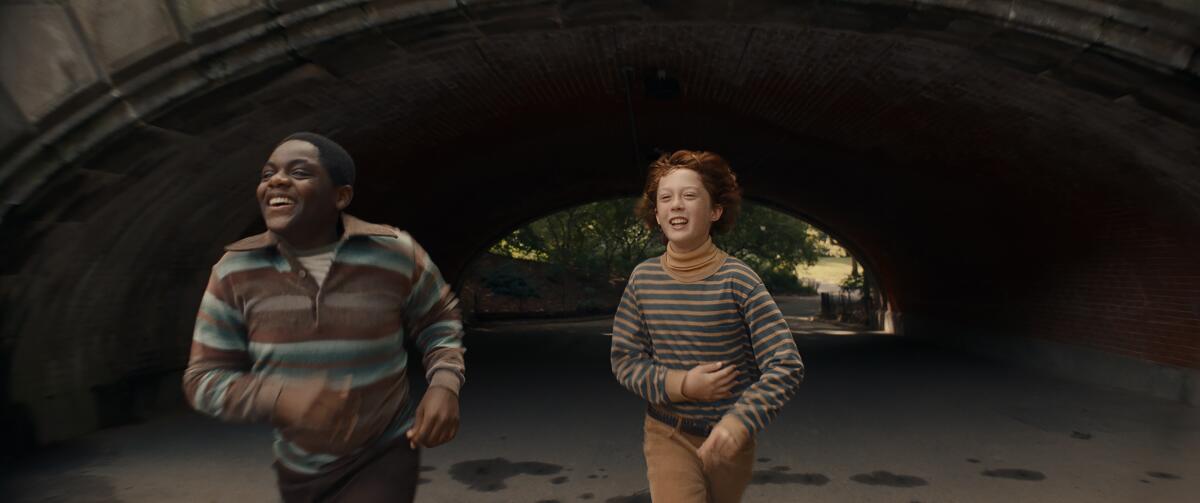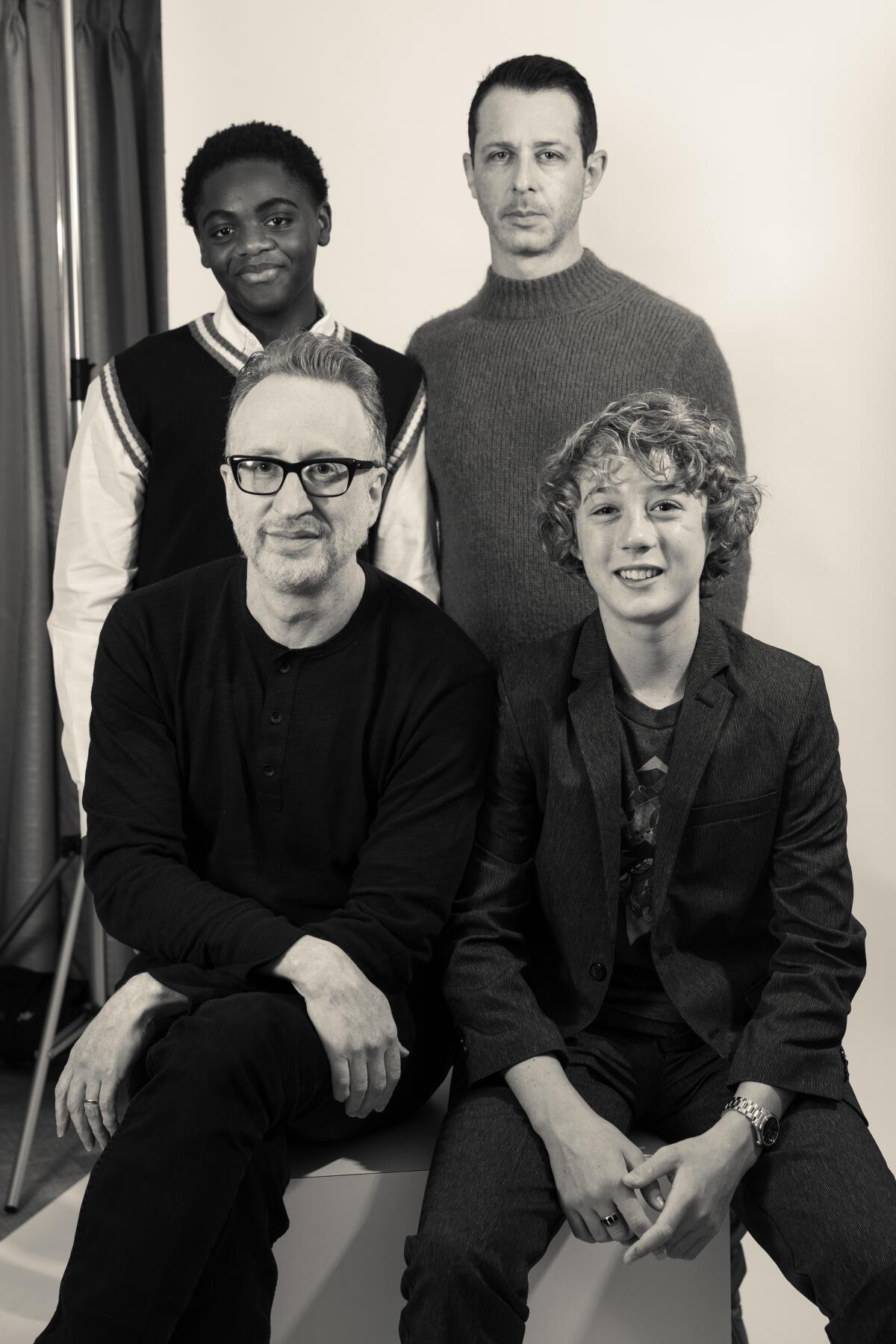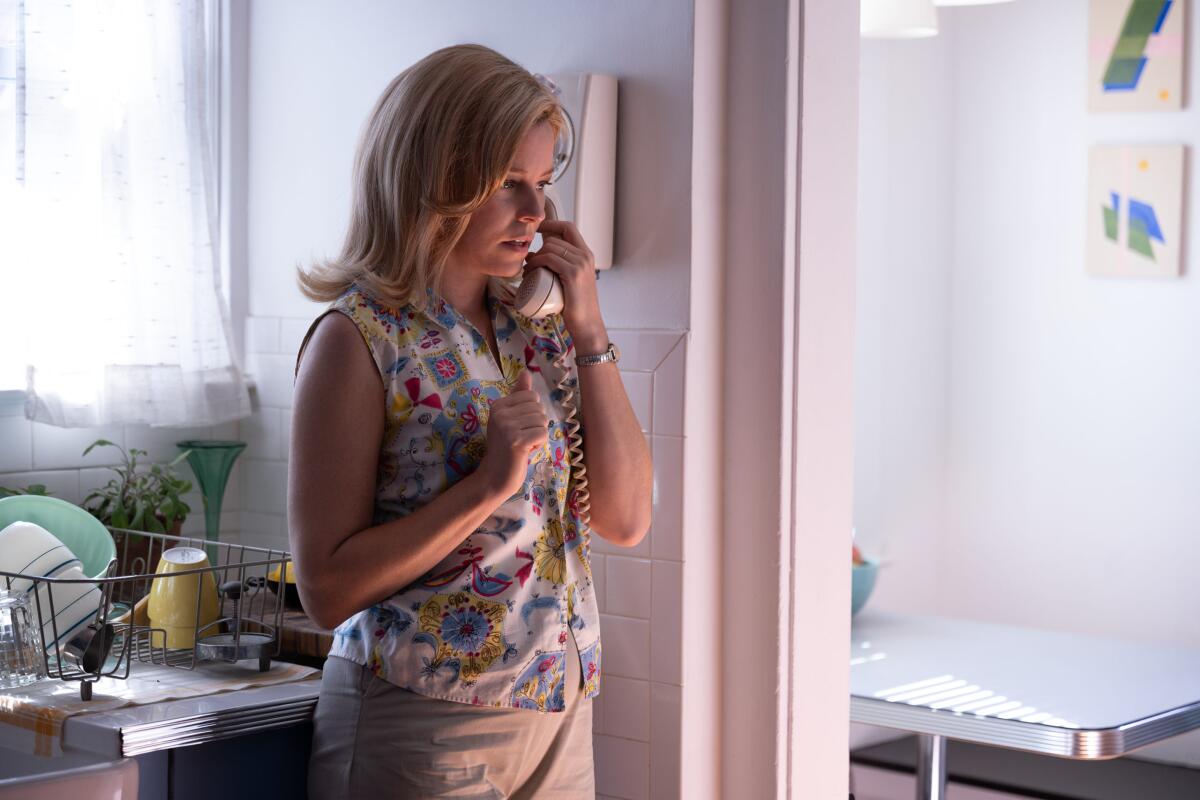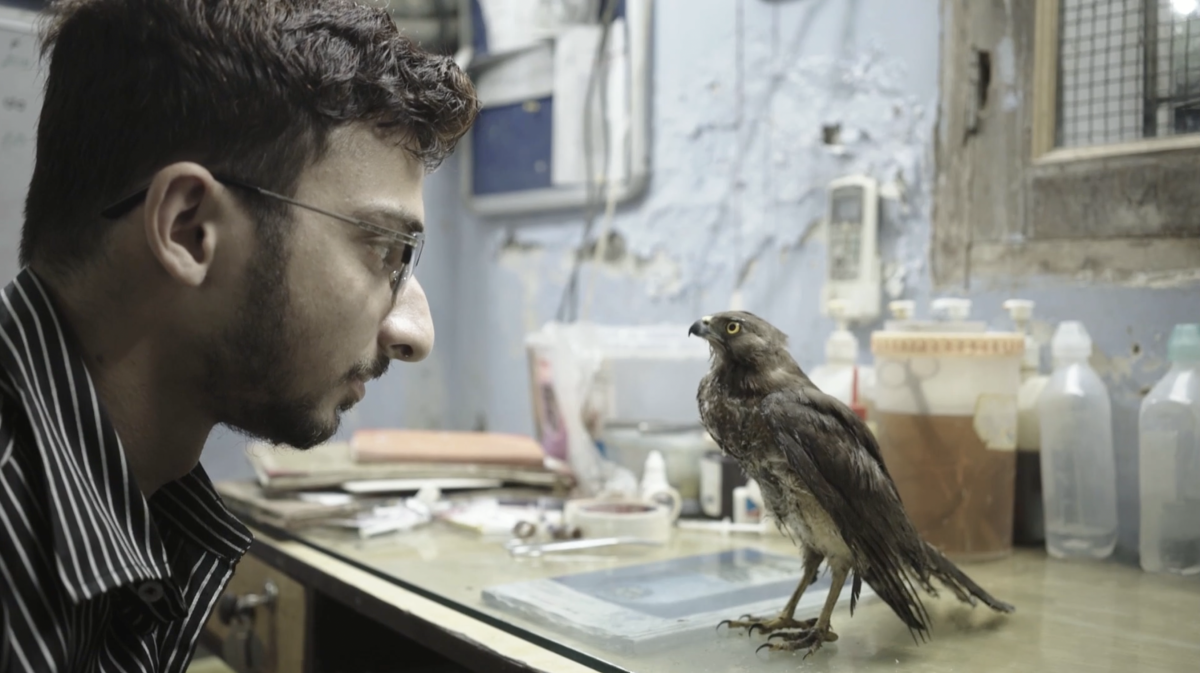James Gray‚Äôs self-reflection in ‚ÄėArmageddon Time‚Äô

Hello! I’m Mark Olsen. Welcome to another edition of your regular field guide to a world of Only Good Movies.
Only good movies
Get the Indie Focus newsletter, Mark Olsen's weekly guide to the world of cinema.
You may occasionally receive promotional content from the Los Angeles Times.
Halloween options. There are any number of ways for film fans to celebrate Halloween this week. Jen Yamato wrote a streaming guide on where to find the best recent horror movies.
Among Jen‚Äôs picks are such recent titles as Zach Cregger‚Äôs ‚ÄúBarbarian,‚ÄĚ Christian Tafdrup‚Äôs ‚ÄúSpeak No Evil,‚ÄĚ Ti West‚Äôs ‚ÄúPearl,‚ÄĚ Henry Selick‚Äôs ‚ÄúWendell & Wild,‚ÄĚ Nyla Innuksuk‚Äôs ‚ÄúSlash/Back,‚ÄĚ Carlota Pereda‚Äôs ‚ÄúPiggy‚ÄĚ and the anthology series ‚ÄúGuillermo del Toro‚Äôs Cabinet of Curiosities.‚ÄĚ
On Halloween itself, the American Cinematheque, in partnership with Outfest, will screen Tony Scott‚Äôs 1983 debut feature, ‚ÄúThe Hunger,‚ÄĚ starring Catherine Deneuve, Susan Sarandon and David Bowie, about very sexy, very glamorous vampires making their way through NYC‚Äôs nightlife scene. The screening will include a costume contest, so dress accordingly.
Also Oct. 31, the L.A. Philharmonic screens the 1920 silent film ‚ÄúThe Cabinet of Dr. Caligari‚ÄĚ at the Walt Disney Concert Hall with accompaniment on the venue‚Äôs massive pipe organ. (The event is sold out, but there are tickets available on the secondary market.)
New Korean Cinema. The Academy Museum wraps up its series ‚ÄúMonstrous: The Dark Side of New Korean Cinema‚ÄĚ with some Halloween-appropriate titles. On Saturday afternoon, there‚Äôs a screening of Kim Jee-woon‚Äôs utterly unnerving ‚ÄúI Saw the Devil,‚ÄĚ a relentless tale of a cop (Lee Byung-hun) pursuing a serial killer (Choi Min-sik). Then, on Saturday night, there will be a screening of Park Chan-wook‚Äôs 2009 vampire tale, ‚ÄúThirst,‚ÄĚ starring Song Kang-ho. Park will be in attendance for a Q&A after the film.
Enjoying this newsletter? Consider subscribing to the Los Angeles Times
Your support helps us deliver the news that matters most. Become a subscriber.
‚ÄėArmageddon Time‚Äô
Written and directed by James Gray, ‚ÄúArmageddon Time‚ÄĚ is based on his own experiences growing up. The film is set in Queens, N.Y., in the fall of 1980. Young Paul Graff (Banks Repeta) befriends Johnny Davis (Jaylin Hill), a Black classmate at his public school. As the two increasingly get into trouble together, Paul sees how he is treated differently, learning the ways power and privilege exert themselves. The cast also includes Anne Hathaway, Anthony Hopkins and Jeremy Strong. The film is in theaters now.
For The Times, Justin Chang connects the movie to the antisemitism and anti-Black sentiments currently poisoning our culture, writing, ‚Äú‚ÄėYou‚Äôve gotta say something,‚Äô Paul‚Äôs grandfather tells him in an earlier scene, urging him to stand up to bullies and be a mensch to those who need it. But the film‚Äôs most wrenching moments play out in the face of Paul‚Äôs silence, his inability to muster words in those moments when it most counts. You could argue that Gray‚Äôs ability to make a movie about this moral agony ‚ÄĒ especially a movie as polished and frequently powerful as ‚ÄėArmageddon Time‚Äô ‚ÄĒ is just another manifestation of his privilege, a sign of how little he knew then and how much he still has to learn now. Or you could argue that he‚Äôs finally learned, however imperfectly, to follow his grandfather‚Äôs advice, and to speak with an anger that is all the more forceful for being directed at himself.‚ÄĚ
I spoke to Gray, Strong, Repeta and Webb about the movie. Gray spoke of the way in which the film mirrors his own experiences: ‚ÄúIt‚Äôs not a documentary, but it‚Äôs pretty close. ‚Ķ I didn‚Äôt want it just to be autobiographical. I wanted it to be personal, which is much more important. Autobiographical is I‚Äôm reciting the facts of the case. And personal means that your emotional life and what is important to you emotionally is in the work.‚ÄĚ
For the New York Times, A.O. Scott wrote, ‚ÄúGray surveys the Graff household with an eye that is both affectionate and critical. ‚Ķ A different filmmaker might have made Esther, Irving and Aaron avatars of liberal hypocrisy. They despise Reagan and root for the underdogs. They also send Ted and Paul to a school whose major benefactors include the Trump family, and drop toxic morsels of bigotry into their table talk. But ‚ÄėArmageddon Time‚Äô is less interested in cataloging their moral failings than in investigating the contradictions they inhabit, the swirl of mixed messages and ethical compromises that define Paul‚Äôs emerging sense of the world and his place in it.‚ÄĚ
For Time, Stephanie Zacharek wrote, ‚ÄúThe idea, maybe, is that our moral turning points are mostly small moments, not big ones. ‚Ķ You could compare ‚ÄėArmageddon Time‚Äô to autobiographical reflections like Alfonso Cuaron‚Äôs ‚ÄėRoma‚Äô or, to a lesser extent, Kenneth Branagh‚Äôs ‚ÄėBelfast,‚Äô both stories in which kids‚Äô eyes are suddenly opened to the unfairness of the world. But for all its tenderness, this isn‚Äôt a movie that allows you to make peace with yourself, or with our highly imperfect world. The next failure to act could be just around the corner. Better be ready for it.‚ÄĚ
For Mashable, Robert Daniels compares the film to 1958‚Äôs ‚ÄúThe Defiant Ones‚ÄĚ as he writes, ‚ÄúThis supposedly morally complex story, partly based on Gray‚Äôs childhood, lacks bite, lacks true introspective, and lacks any notion resembling interest in aesthetically and narratively humanizing its injured party: the lone Black character, Johnny. The film, in fact, is accidentally a metaphor for how little politically moderate white folks, in general, have actually reckoned with their part in the contemporary anti-Black rise of Trumpian rhetoric. ‚Ķ In processing his own guilt, Gray succumbs to oppressing Johnny by erasing his personhood from the film, thereby unwittingly causing Black audiences to feel as unseen as Johnny does.‚ÄĚ

Enjoying this newsletter? Consider subscribing to the Los Angeles Times
Your support helps us deliver the news that matters most. Become a subscriber.
‚ÄėCall Jane‚Äô
Directed by Oscar-nominated screenwriter Phyllis Nagy, ‚ÄúCall Jane‚ÄĚ is a fact-based story that has taken on a new urgency. Set in 1960s Chicago, a housewife (Elizabeth Banks) with a life-threatening heart condition is denied an abortion by a hospital board, so she turns to a secret network of women dedicated to providing safe, albeit illegal, abortions. She soon becomes a part of the group as well. The cast includes Sigourney Weaver, Wunmi Mosaku, Kate Mara and Chris Messina, and the film is in theaters now,
For The Times, Katie Walsh wrote, ‚Äú‚ÄėCall Jane‚Äô offers a heartening message about the long, ongoing legacy of women helping other women access abortion healthcare, legal or not. Though the film is politically and culturally urgent, it‚Äôs too much of a challenge to connect with the void of character at the core of this screenplay. We may all have the power to be Jane, but the image of Jane remains frustratingly hazy in Nagy‚Äôs depiction.‚ÄĚ
For the New York Times, Manohla Dargis describes seeing the film earlier in the year and again more recently, noting, ‚ÄúSo, should you see ‚ÄėCall Jane‚Äô? You bet. And not just because it‚Äôs satisfying to watch Banks, Weaver, Mosaku et al as feminists fighting the patriarchy with wit, intelligence and medical know-how. This is a story that needs to be told, again and again. ‚Ķ ‚ÄėCall Jane‚Äô helps modestly correct that sorry history by showing women organizing, raising consciousness and helping one another at great personal cost. In many ways it‚Äôs a process movie. It‚Äôs also eerily of the moment. Because, by the time I saw the film a second time, its vision of direct action no longer looked musty, but instead resembled the new underground abortion networks operating in states that have banned abortion. It looked like now.‚ÄĚ
For IndieWire, Kate Erbland wrote, ‚ÄúWhile ‚ÄėCall Jane‚Äô might suffer from a litany of the usual first film missteps ‚ÄĒ a tricky tone often hobbles it, as does a bent toward gliding over history in service of telling a singular story ‚ÄĒ Nagy‚Äôs affection and respect for women is a strong fit for the material. And Banks, who has stealthily proven her ability in a variety of genres, both in front of and behind the camera, turns in a career-best performance as Joy, a woman who is about to undergo a shift of her own.‚ÄĚ

‚ÄėAll That Breathes‚Äô
Directed by Shaunak Sen, the documentary ‚ÄúAll That Breathes‚ÄĚ won prizes at both Sundance and Cannes. The film is about brothers Mohammad Saud and Nadeem Shehzad, who take it upon themselves to rescue and rehabilitate birds injured by the pollution of New Delhi. The film is in theaters now and will be on HBO sometime next year.
For The Times, Robert Abele wrote, ‚Äú‚ÄėAll That Breathes,‚Äô Shaunak Sen‚Äôs extraordinary documentary about amateur bird medics Nadeem Shehzad and Mohammad Saud, operates in a transfixing liminal space ‚ÄĒ one where repair heals not only the wounded creature, but the human being briefly tending to it, and also clarifies a precipitous moment of ecological and societal change. ‚Ķ As deliberate as the image-making often is, it‚Äôs always to train us in looking as the brothers do, to consider the breadth of life and interconnectedness in our world: Wherever you are, ‚ÄėAll That Breathes‚Äô is asking, can you see what‚Äôs there, what needs your attention?
For the New York Times, A.O. Scott wrote, ‚ÄúNeither a nature documentary nor a political lecture, ‚ÄėAll That Breathes‚Äô is a subtle, haunting reflection on the meaning of humanity ‚ÄĒ on the breathtaking kindness and heartbreaking cruelty that define our wounded, intrepid, predatory species.‚ÄĚ

Only good movies
Get the Indie Focus newsletter, Mark Olsen's weekly guide to the world of cinema.
You may occasionally receive promotional content from the Los Angeles Times.




